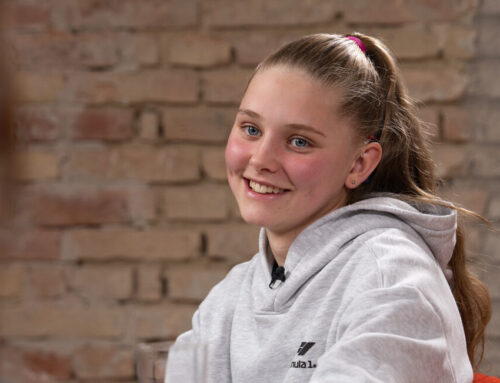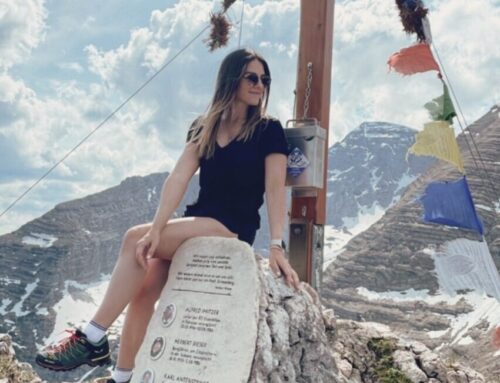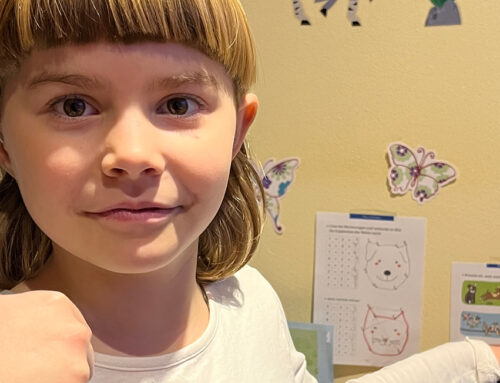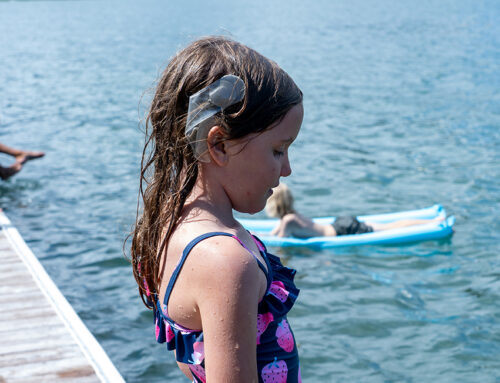Help for people with hearing impairment in Palestine
At the turn of the year, Western cultures focus on the town of Bethlehem, but children with hearing problems or other disabilities who live there often remain unnoticed.
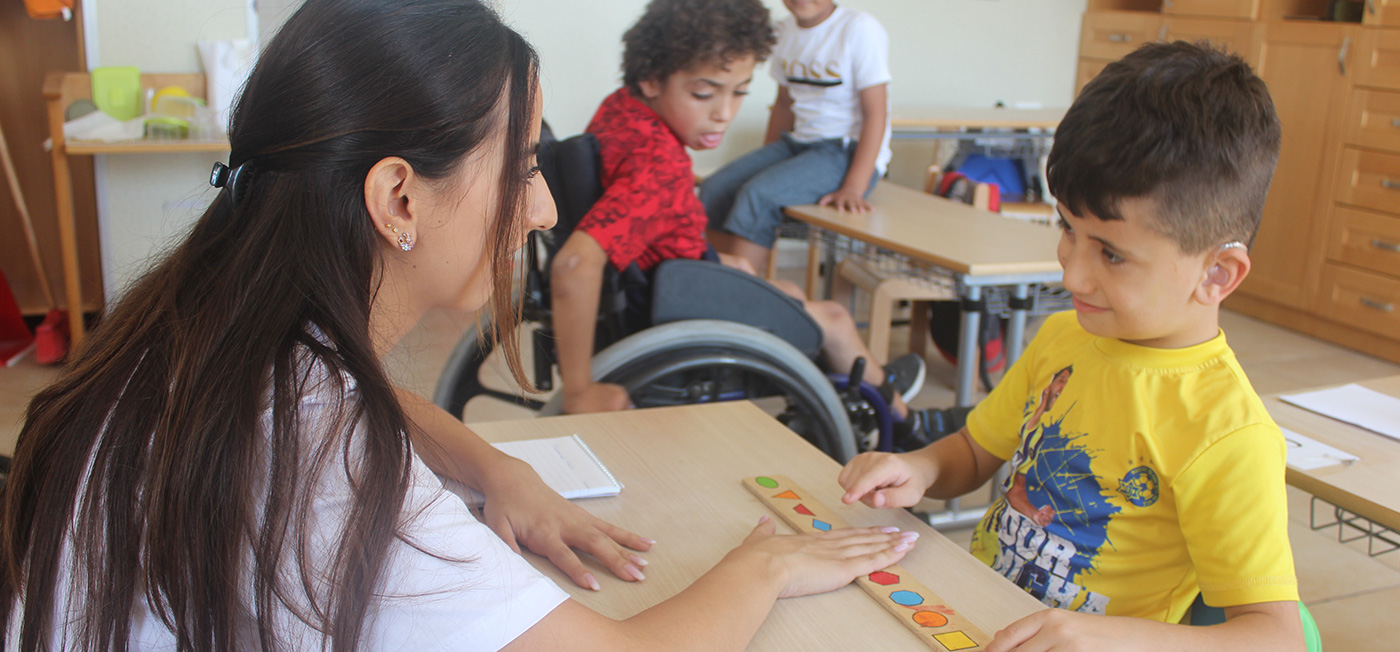
A newborn baby in a crib with an ox and a donkey on an icy snow – this is the image with which we in Europe celebrate a peaceful family holiday shortly before the turn of the year, which is also an important factor for our economy.
Regardless of the significance we attach to the newborn whose birthday is the occasion to celebrate, it is historically proven that Jesus was born and lived in then Jewish empire under Roman occupation. But where and when exactly remains a matter of faith. While the Koran describes the birth of Îsâ “in seclusion” in or near Jerusalem, Christian gospels locate Jesus’ birth in a cattle shelter in Bethlehem ten kilometers away, which today lies in Israeli-administered Palestine.
There is certainly no snow there, but Christmas is celebrated every day: in the Grotto of the Nativity at Virgil and in the region’s maternity hospitals with every newborn. However, many of the children are born with hearing impairment.
Life in Bethlehem
Today, Bethlehem is one of the tourist magnets of the Palestinian autonomous areas. Still, everyday life there is marked by recurring escalations of the Middle East conflict. Palestine has no airport of its own and is dependent on the outside help in other important respects as well. The Palestinian population, predominantly Muslims and Christians, are severely challenged by the harsh circumstances. This particularly affects children, the sick and people with disability. For example, infant mortality in Palestine is almost five times higher than in Austria. There is only one doctor for every 1,250 inhabitants, and the situation is similarly difficult when it comes to other aspects of medical or social care.
“People without impairments that live here already have difficulty meeting their basic needs. So unfortunately, people with physical and mental impairments are usually overlooked by the others,” explains Burghard Schunkert, director of the Lifegate kindergarten in Beit Jala. There is a lack of state or public support and education programs. The experience also shows that public kindergartens and schools are usually reluctant to accept children with disabilities who require intensive care.
Effeta – a special school for deaf children
Three percent of the Palestinian population has hearing problems, which are mainly genetic. In some isolated settlements the figure goes up to 15 percent. In addition to the lack of government care, there is a lack of information among the population about the consequences of hearing problems and about possible solutions for hearing.
A member of the WHO’s World Hearing Forum Changemakers group is Effeta, a special school in Bethlehem founded in 1971 for about 180 deaf children with a focus on oral rehabilitation. The school is run by an Italian religious order and offers programs from early intervention to high school. It aims to prepare students for a successful life in a hearing society and offers boarding, parent groups and social support for families. In addition to hearing aids, they also use lip reading, facial expressions and feeling the vibrations of the throat.
Lifegate´s name suggests what exactly the German Association for Rehabilitation in the West Bank wants to be for young people with disabilities. In Beit Jala near Bethlehem, it provides support for around 250 affected people and their families, from early intervention to professional training and therapy. Numerous children with hearing problems are also included in the programs. Walking aids, glasses or hearing aids are among the “Christmas wishes” of the little ones here. Jugend eine Welt from Austria tries to help and meet these needs as far as possible.
The Light of Hearing
Perhaps they came on the same plane – eight-year-old Nail from the West Bank and five years older Birgit from Upper Austria – but it is unlikely. While Birgit’s Peace Light from Bethlehem waited to be distributed on Christmas lanterns all over Austria, the tender Nail pressed himself tightly against his father’s legs, waiting for his check-up appointment at Vienna General Hospital. At the beginning of this century, hearing implantation and care in Palestine was practically impossible for children from Bethlehem and the surrounding area. Since the second Intifada, the construction of the separation wall and Israel’s tightened regulations on border crossing, medical care in the neighboring country also became unrealistic.
This was the trigger for BASR, the “Bethlehem Arab Society for Rehabilitation”, to expand its medical services. Since 2008, CI (after)care has also been offered there.
Life with hearing loss: hearing implants in Palestine
BASR is an NGO, a private charity, founded in 1960 by the British Leonard Cheshire Charity and run by a local team since 1975. It provides medical treatment to people regardless of their religion, gender, social status, or disability, even if they cannot pay for it or cannot pay for it in full.
Currently, BASR is one of three help centers providing Cochlear Implants and other hearing implants in Palestine. Due to the lack of a government implant program and financial resources of those affected, implants and implantation are financed by donations. Families usually learn about the possibility of implantation via Internet or Facebook. However, the waiting lists are long. Currently, only about 25 percent of the annual need can be covered financially.
We refuse to be enemies!
What the above-mentioned projects in the Bethlehem region have in common is that they want to help people regardless of their nation or religion. Unfortunately, it´s not always like that in the heartland of the Middle East conflict. But this brings hope for the people of the region.
As you pass the blockade on the unpaved road to Nahalin near Bethlehem and continue up to the Nassar family estate, you catch sight of a stone just outside the front gate with the inscription “We refuse to be enemies!” The Arab-Christian family has proclaimed their property a “Tent of Nations.” Young people of different nations and religions are invited to participate in workshops and work camps. The goal is to break down prejudices and build understanding: for a peaceful coexistence, born somewhere between Bethlehem and Jerusalem.
Help for people with hearing loss in Palestine
BASR Bethlehem Arab Society for Rehabilitation: Medical, therapeutic and rehabilitation services with a focus on disabilities https://basr.org/eng/
Effata: Special school for hearing-impaired children www.scuolaeffeta.org
Lifegate: Support and therapy for deaf, visually impaired and chronically ill children www.lifegate-reha.org and https://www.jugendeinewelt.at/projekte/laender/naher-und-mittlerer-osten/palaestina/liebevolle-betreuung-fuer-die-kleinsten/
Tent of Nations: Family farm to build understanding of nations and the environment www.tentofnations.org


